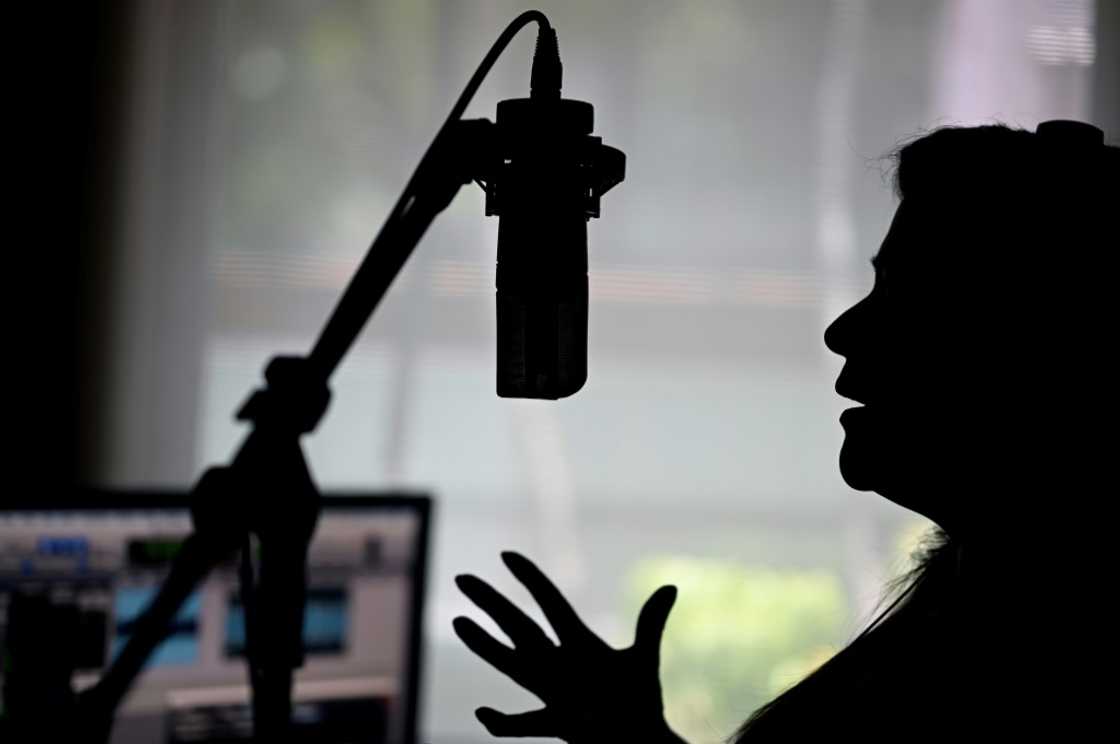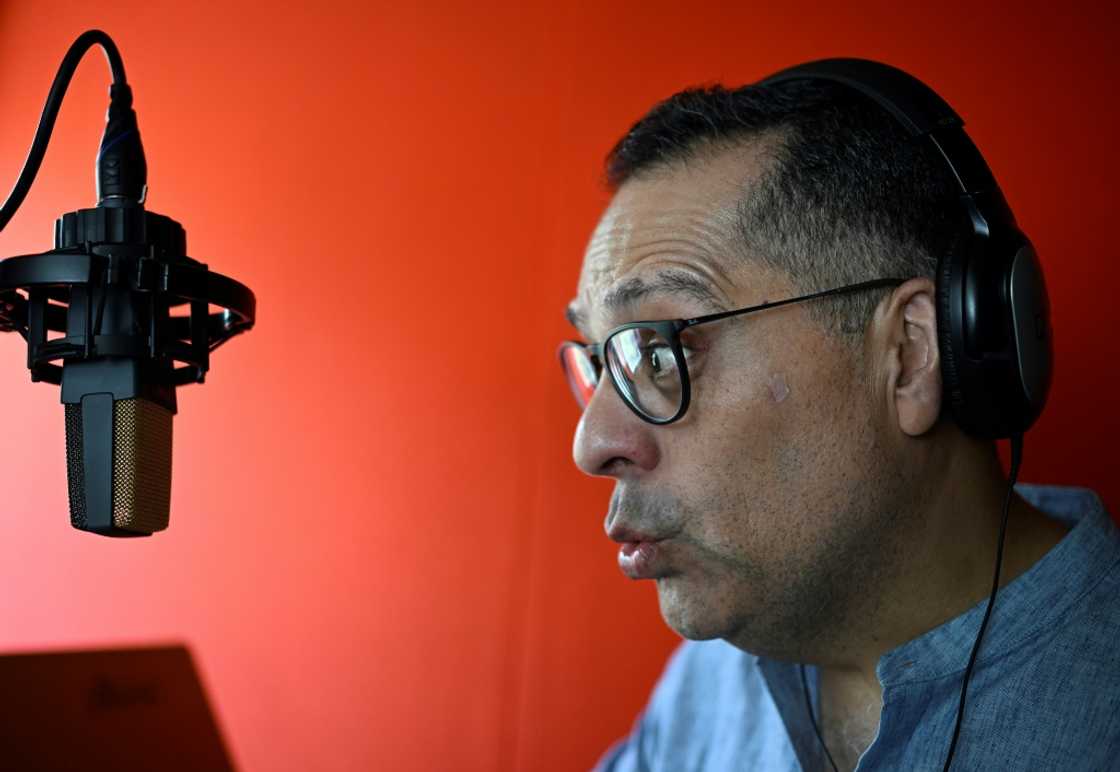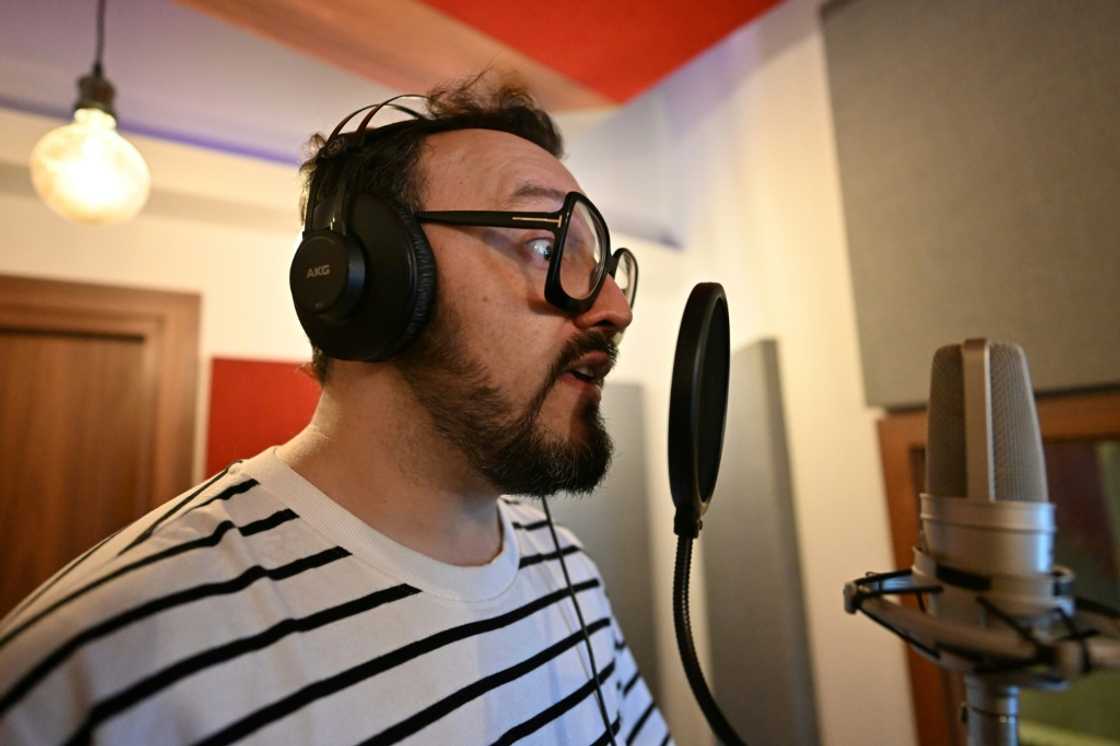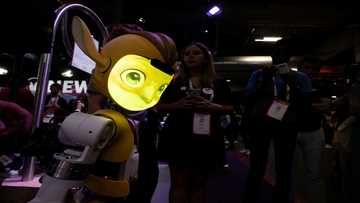'Don't steal our voices': dubbing artists confront AI threat

Source: AFP
PAY ATTENTION: Enjoy reading our stories? Join YEN.com.gh's Telegram channel for more!
Voice actors around the globe are mobilizing against the unregulated use of artificial intelligence (AI) to generate and clone human voices that they fear poses a threat to their livelihoods.
"We're fighting a very big monster," said Mario Filio, a Mexican artist who has done voiceovers for Hollywood star Will Smith, the Obi-Wan Kenobi character in Star Wars and the party-loving lemur King Julien in the animated movie "Madagascar."
Campaigning under the slogan "Don't steal our voices," more than 20 voice acting guilds, associations and unions from Europe, the United States and Latin America have created the United Voice Artists coalition.
It represents the faceless voiceover artists and narrators of commercials, movies, audiobooks and video games who fear that their voices will be replaced by machines, or even cloned by artificial intelligence without their consent.
"The undiscriminating and unregulated use of artificial intelligence is a risk that could lead to the extinction of an artistic heritage of creativity and wonder, an asset that machines cannot generate," according to the group, which says its members include the US National Association of Voice Actors (NAVA) and Latin America's Organization of United Voices.
"Our voices are our livelihood," NAVA vice president Carin Gilfry said in a statement last month.
"And if we don't have control over how those voices are used, we can't make a living," she added.
Voice artists were already competing with text-to-speech technology that turns written words into synthetic voice.
Now artificial intelligence has brought a new threat.

Source: AFP
Thanks to machine learning, software can compare a voice sample with millions of existing ones, identifying patterns that generate a clone.
"It's fed by voices that we've been providing for years," said Dessiree Hernandez, president of the Mexican Association of Commercial Announcers.
"We're talking about the right to use your voice without your consent," she added.
'Adapt or disappear'
Platforms offer human sounding text-to-speech services for a fraction of what professionals would charge.
One, revoicer.com, says that it does not intend to replace human voiceovers, but to offer a quicker and cheaper alternative.
Although they continued to be hired, voice actors suspect that companies are using their voices to build up their archives.

Source: AFP
The artists are seeking tools to track their voices in the face of sophisticated piracy.
They want laws to prevent recordings of their voices being used to develop AI without their consent, and also support setting quotas for human voiceovers, said Colombian voice artist Daniel Soler de la Prada.
In the future, audiences could hear a famous actor's voice in several languages but with the intonation of a dubbing artist, Filio said.
While that could generate employment and benefits for the public, voice artists "need to charge what's fair," he added.
Mexican voice artist Maclovia Gonzalez said that she would only sign a contract with an AI company if it provided enough information about how the content would be used.
"I want to be part of this revolution, but not at any price," she said.
Art Dubbing, a company that has received several requests from clients to use synthetic voices, faces a dilemma: "adapt or disappear," said its Mexican founder, Anuar Lopez de la Pena.
Filio for his part said that he stopped recording for many clients for fear of hurting his colleagues' livelihoods.
But he is skeptical that artificial intelligence will replace voice actors completely because the machines have "no soul," he added.
New feature: Сheck out news that is picked for YOU ➡️ click on “Recommended for you” and enjoy!
Source: AFP




